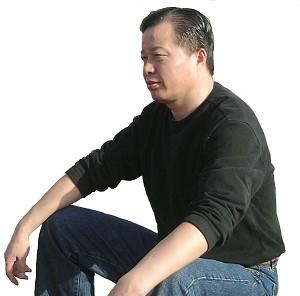“I am about to be sent to prison,” said Chinese human rights lawyer Gao Zhisheng in a prophetic conversation with a friend on Sept. 11. “The time is near. It will be in less than ten days.”
On the night of Sept. 22, plain-clothed police officers broke into Gao’s home, taking the Nobel Peace Prize nominee away to an unknown location. Neither he nor his family have been heard from since.
The outspoken lawyer said he was recently warned by authorities against publicly criticizing the Chinese regime, lest he once again face imprisonment. He refused to be cowed, and last week published a 17-page letter addressed to U.S. law-makers detailing rights violations by the Chinese regime and calling for a boycott of the Beijing Olympics.
“As a Chinese, I cherish profound love for my homeland and our suffering people. I alsolong to see the day when Olympic Games are held in China. But when I remember the social environment of China, and how the Olympic Games will be used here, my conscience and sense of justice make my heart ache.
“Under the name of securing the success of the Olympic Games, all kinds of evils have been committed in broad daylight, including forced evictions, arbitrarily arresting and persecuting people who petition the authorities, and suppressing religious believers,” read the letter.
Gao went on to detail a list of rights abuses ranging from the persecution of Falun Gong, Tibetans, Christians, democracy activists, Internet dissidents, and lawyers, as well as drawing attention to hundreds of thousands of land evictions, environmental pollution, forced abortions, and the plight of farmers, miners, and migrant workers.
Among the cases listed was that of a 28-year-old doctor and Falun Gong adherent named Liu Boyang, who lay in agony in a Chinese labor camp as guards beat him to death. His mother, also imprisoned for her belief in the banned spiritual discipline, spent her last days listening to the tortured screams of her son in the next room. Both were killed in the same building within 10 days of each other for refusing to renounce their faith.
Gao described the torture of fellow human rights attorneys such as Guo Feixiong, who Gao says was detained three times for his civil rights work and interrogated around-the-clock for 13 consecutive days. While in detention in a Shenyang City detention center, the young lawyer was shackled to a bench and shocked on his genitals with electric batons.
Among the others he spoke for were China’s estimated 120 million migrant workers, many of whom work for little over a dollar a day; victims of environmental pollution whose water supplies are unsafe to drink, journalists and Internet dissidents imprisoned for exercising freedom of speech; and the hundreds of thousands of families forced out of their homes by the government with little or no compensation, often to make way for Olympics projects.
Although Chinese authorities promised in 2001 that the Beijing Olympics would provide an impetus to clean up China’s human rights record, Gao says it has instead been backsliding. The regime is cracking down even harder to quell voices of dissent ahead of the games.
Chinese authorities appear determined to prove him right.
Gao is a self-educated human rights lawyer who earned a reputation as a fiery advocate for the country’s disenfranchised and persecuted. Since penning an open letter to China’s leaders in 2005 criticizing the regime’s violent persecution of Falun Gong adherents, Gao has faced near constant surveillance and interrogations. The communist regime has shut down his legal practice, withdrawn his constitutional rights, and have even detained and beaten him.
A team of security agents have monitored his family around the clock. Even his 3-year-old son is guarded 24/7 by four police officers.
In his letter to the U.S. House and Senate last week, Gao speculated as to the reasons for the treatment that he and other rights advocates are subjected to.
“The communist regime … wants to prove to the world that [it] still has power over China and still enjoys people’s full support. As more Chinese people are waking up and rising to demand an end to tyranny, the call for human rights is louder and louder.”
Under these circumstances, he says, the communist regime has developed a determination to preserve its power “at all costs.”
Yet the hysteria with which Gao Zhisheng’s open letters have been met, might also be explained as a function of the man’s charisma. Often called “the conscience of China,” Gao has been likened to Nelson Mandela, Mahatma Gandhi, Václav Havel, and Aung San Suu Kyi. In Chinese dissident circles, he is frequently cited as a potential leader of a democratic China.
Whether that should ever come to pass, remains to be seen. One thing is for sure: Perhaps no one during the history of the Chinese Communist Party has better embodied the hopes and the grievances of such a broad segment of the nation’s population.
“His values are so much more in keeping with the values of the people of China than the government, such that he represents a major threat to their legitimacy. And no doubt he would play a major role in a fast-coming democratic China,” says David Kilgour, a former Canadian member of parliament who nominated Gao for the Nobel Peace Prize.
Gao’s suffering at the hands of the regime has become a rallying point for the numerous groups he has represented. In February 2006, he initiated a hunger strike to protest rights abuses by the Chinese regime, and was joined by activists in at least 18 Chinese provinces, some of whom were arrested for participating. Among his supporters were farmers, AIDS sufferers, academics, and religious believers.





